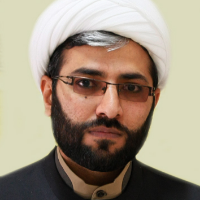Internal and External Evidences and Their Contradiction
Author(s):
Abstract:
The conflicting oral testimonies are one of the important issues in legal discussions. What is generally said is that the presence of two just witnesses is sufficient as a proof of something. At times it happens that the claimant may have two witnesses while the defendant too might present two witnesses in which case the first testimony is contradicted by the second. This contradiction is the subject of study in this article. If the two sides are the parties to the legal case, they will take an oath or do nokul (lit. refusal) in which case the thing which the two sides are disputing over will be halved. Some jurists like Sheikh Tusi (ra) are of the view that the denier has no right to present two witnesses. They have said that the denier has the right to only take an oath, not to present witnesses. Some other jurists like Allamah Hili (ra) have stated that the denier has the right to present witnesses. In fact, it has been said that the denier has such a right only in non-legal cases. However, there are people like Abu Salah al-Halabi who believe that the denier has the right to present witnesses (internal evidence) and if their oral testimony contradicted that of the plaintiff (external evidence), the testimony of the denier takes precedence. Some jurists like late Naraqi and Imam Khomeini (ra) are of the view that in the case of contradiction between the testimonies of the two parties, the denier's testimony takes precedence. Indeed, every single approach in this regard has its own respective reasons and arguments. The writer is of the view that occurrence of contradiction is possible between internal and external evidences and some jurisprudents like Sheikh Tusi (ra) have finally said: "If the external testimony mentions the cause for its testimony, it will take precedence." The Second Martyr (ra) also gives precedence to internal testimony to internal one in case the proofs are equally credible. But the true opinion is that none of the evidence precedes the other. If both evidences are dominant, the denier has to take an oath and the decree will be issued in favor of the one who is holding the property in possession.
Keywords:
Language:
Persian
Published:
Biquarterly Journal of Promotion of Imamiyah Principles of Jurisprudence, Volume:1 Issue: 2, 2015
Pages:
47 to 76
magiran.com/p1577352
دانلود و مطالعه متن این مقاله با یکی از روشهای زیر امکان پذیر است:
اشتراک شخصی
با عضویت و پرداخت آنلاین حق اشتراک یکساله به مبلغ 1,390,000ريال میتوانید 70 عنوان مطلب دانلود کنید!
اشتراک سازمانی
به کتابخانه دانشگاه یا محل کار خود پیشنهاد کنید تا اشتراک سازمانی این پایگاه را برای دسترسی نامحدود همه کاربران به متن مطالب تهیه نمایند!
توجه!
- حق عضویت دریافتی صرف حمایت از نشریات عضو و نگهداری، تکمیل و توسعه مگیران میشود.
- پرداخت حق اشتراک و دانلود مقالات اجازه بازنشر آن در سایر رسانههای چاپی و دیجیتال را به کاربر نمیدهد.
In order to view content subscription is required
Personal subscription
Subscribe magiran.com for 70 € euros via PayPal and download 70 articles during a year.
Organization subscription
Please contact us to subscribe your university or library for unlimited access!



